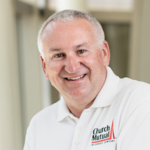The past year has created unprecedented strain for essential workers, especially in healthcare. A recent study showed that more than one in five healthcare workers has experienced depression and anxiety during the pandemic. Fatigue and burnout also are common — and not just in clinical spaces. Senior living community leaders, providing essential services to their residents during the COVID-19 pandemic, are facing similar challenges.
As residents face heightened threats to their health, leaders are working long hours, facing exhaustion and isolation, and limited to online contact with many of their loved ones. The cumulative stress is taking its toll on the leaders’ own mental and emotional health, which, unfortunately, tends to drop on the list of priorities.
Until broad-based herd immunity is achieved, there are no easy, immediate answers to this problem. There are small steps senior living community leaders can take to support their own mental and emotional health, however, and these steps, in turn, will help their teams. The following are a few ideas to get started.
Stay up to date on workplace resources — and encourage their use
Don’t shoulder the burden alone. Many organizations offer counseling resources, family services and group programs for employees, including some tailored to specifically to leadership. Those offerings may be expanded or updated in response to evolving needs, so try to keep your finger on the pulse of what’s available and ensure that you and your team know your options.
Whenever relevant, encourage colleagues to use these resources. If they feel hesitant and uncertain about trying something new, positive reinforcement from you may help them feel more comfortable and confident. At times, you even may have an opportunity to express that you also are dealing with challenges and have found it valuable to seek help. Although it’s important to be intentional and appropriate in what you share, when you’re willing to be vulnerable as a leader, it can show others solidarity and build a stronger sense of shared community and experiences.
Take care of your physical health
During periods of increased mental and emotional strain, taking care of your body often falls by the wayside, but it is the core foundation for your overall health and well-being. Exercising, eating healthy and getting a good night’s sleep are more important than ever.
It may help to team up with loved ones or coworkers to build motivation. Get a group to participate in an online exercise challenge, or plan a regular walk, run or bike ride to catch up. Do your best to eat healthy, nutritious foods, and avoid the temptation to stress-eat and snack. Finally, of course, try for seven to nine hours of sleep each night. That’s easier said than done, but a rested body supports a clearer and calmer approach to the day.
Set aside time for rest and relaxation
What’s your favorite way to unwind and recharge? Maybe it helps you to practice mindfulness. Be sure to check out the new meditation apps that help clear away the mental clutter. If you’re an outdoors person, don’t wait for the weekend to connect with nature. Pack a lunch that can serve as a picnic or walk to the nearest green space to get your steps in. Take a call on the patio (camera off, if needed). If you need to refocus and reset, try scheduling breaks for activities where you can be fully absorbed, such as reading, working puzzles or playing word games. Whatever works for you, be sure you make space for it, even on the busiest days. Those actions only may require a small amount of time, but they can make a big impact on managing stress and anxiety.
It’s never simple to find the right balance of personal and professional, but it’s important to try as we navigate the next phases of the pandemic. In senior living communities, healthy leaders are in a better position to sustain their teams and provide the services residents need. Self care, ultimately, supports better care for others.
Rich Poirier is the president and CEO of Church Mutual Insurance Company, S.I. (a stock insurer), which offers specialized insurance for religious organizations of all denominations, public and private K-12 schools, colleges and universities, senior living facilities, secular and non-secular camps and conference centers, and nonprofit and human services organizations throughout the United States. Church Mutual is a stock insurer with policyholders who are members of the parent mutual holding company formed on Jan. 1, 2020.




